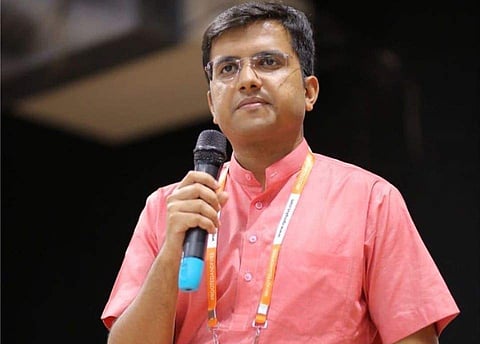

Ever so often, if you check out the career advise column in most newspapers, there is at least one college-goer who regrets the rushed decision they made as they've now discovered where their true academic interests lie. As soon as the XII standard exams are over and the results are out, most kids hardly get enough time to properly think about their own interests and are most often pushed to pursue a degree that they might not necessarily like. And by the time realisation dawns on them, it most likely is already too late. To ensure that class XII students make the right career choice, Rishihood University in Haraya
Sahil Aggarwal, CEO and Co-founder, Rishihood University, explains, "This programme will begin from July 2020 and it will go on for nine months. These nine months are divided into three terms - during the first three months, we will have classes for students in our university, the next three months will be spent on individual projects or internships, while the last three months are when students can apply for higher education abroad or prepare for the necessary exams. While on campus, we will also be conducting workshops on various topics for the students. Here, people from different domains or industries share their experiences about how one can plan their career. Once the students go off-campus, these sessions will happen online." He adds, "Students will also study different courses including basics of economics, current affairs, managing personal finance etc. They will also be doing a lot of field visits to corporate offices, government offices, non-government organisations and so on. We have tied up with several corporates, for example in Sikkim, we have tied up with an organisation that works on water rejuvenation and environmental issues. Through this, our students will gain some hands-on experience and their opinions and viewpoints towards life will mature. They need not become environmentalists but they will develop a sense of social responsibility."
The concept of a gap year is not very popular in a country like India. So, is this the first of its kind? Sahil replies, "Yes, it is happening for the first time in India. In other countries, they follow the gap learning method to expose students to different career options so that they choose the right one for themselves. In India, some students who are interested to experiment do it all by themselves by taking on a private mentorship. They take a year off and travel to different universities and do a lot of projects. We decided to design a structured programme and offer it to other students." Sahil, who is expecting 40 to 50 students to be part of this programme, adds, "When we shortlist students, marks are not as important but we assess their aspirations and their interests. This is particularly meant for students who are looking to take up alternate career options."
But won't a gap year lead them to 'lag behind' as feared by most eager parents? To this, he replies, "Many parents ask us the same question and this fear stems from an obvious place. But my friends and I realised our interests and dreams when we were pursuing our degree or a little later in our lives. So, we felt that students can invest their time now to understand what they want to do rather than think of it later." At the end of the programme, students will be required to make a presentation of their project. Through this, the faculty and mentors will be able to gauge if students have gained the appropriate knowledge or not. "We will talk to them to find out if they are confident about the career they've chosen. There are different ways to assess this through psychometric methods. We will observe a transformation in their personality. The way they approach a subject to gain knowledge will be different when they are in school. They will start focusing on research, independent reading and writing skills after this. Our focus is to prepare these students to gain admission in some of the top universities around the world. Students will be awarded a certificate of completion and transferable credits by the end of the programme," Sahil concludes.
